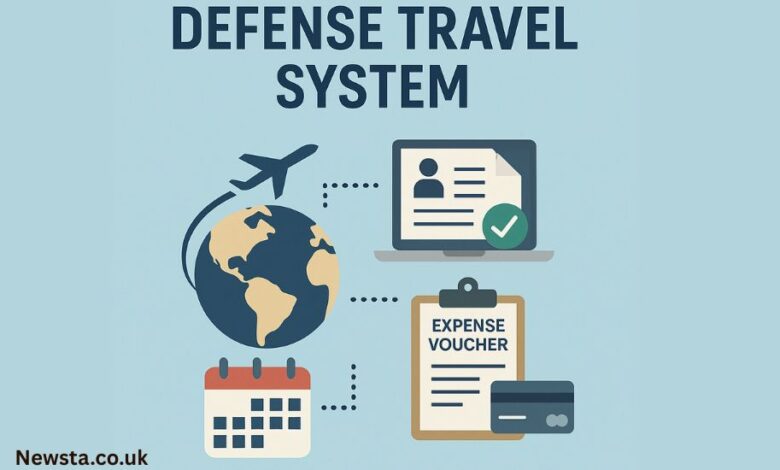Defense Travel System: A Comprehensive Guide to DoD’s Travel Automation Platform

In today’s era of digital transformation, the U.S. Department of Defense (DoD) has long relied on a specialized travel management platform known as the Defense Travel System (DTS) to handle the complex needs of official travel. For military, civilian, and contractor travelers under DoD authority, DTS serves as the central, end-to-end system for authorizing, booking, reconciling, and reimbursing travel. This article dives deep into how DTS works, its features, challenges, and recent updates, providing you with a well-rounded view.
What Is DTS? Origins and Purpose
The Defense Travel System (DTS) is a fully integrated, electronic, paperless system designed to automate nearly every part of the travel workflow for Department of Defense personnel.
Its functions include:
- Creating travel authorizations (pre-trip approvals)
- Booking flights, hotels, and rental vehicles
- Submitting expense vouchers (post-trip)
- Routing documents to authorizing officials
- Ensuring reimbursements and directing funds (to bank accounts and Government Travel Charge Card vendors)
- Retaining completed travel records for audit and reference
Essentially, DTS is DoD’s “one stop shop” for official travel – from planning, to execution, to reimbursement. The Defense Travel Management Office (DTMO) provides functional oversight of DTS, while the Defense Manpower Data Center (DMDC) Program Management Office (PMO-DTS) handles acquisition, technical, operations, and maintenance oversight.
DTS is available globally at thousands of DoD sites, processing a massive number of travel transactions daily.
Who Uses DTS & Who’s Exempt
Eligible Users
DTS is intended for:
- Active duty, Reserve, and National Guard service members
- DoD civilian personnel
- Dependents or guests traveling under invitational orders
- Certain contractors or non-DoD employees traveling under DoD authority
User roles in DTS include: travelers, authorizing officials (AOs), routing officials, Defense Travel Administrators (DTAs), and Non-DTS Entry Agents (for users who input data but don’t directly access DTS).
Exemptions and Special Cases
Not every travel scenario is managed by DTS. Exceptions include:
- Some local travel or in-garrison movements
- Certain foreign national travel under special rules
- Situations where alternate systems or manual processing are required
- Cases of unsubmitted travel documents requiring manual de-obligation
DTMO periodically issues memos updating who may use DTS, addressing special cases and clarifications.
How DTS Works — The Workflow
Below is a breakdown of typical DTS processing, from planning to settlement.
1. Authorization / Pre-Trip (Pre-Approval)
The traveler initiates a travel authorization in DTS before departure, entering trip details such as destination, dates, and purpose.
Booking of airline, lodging, car, and other services occurs under the authorization.
The authorization is routed to an Authorizing Official (AO) for approval before travel.
2. Travel & Expense Tracking
While on travel, the traveler collects receipts, logs expenses, and may adjust the authorization if changes are needed.
3. Voucher / Post-Trip Submission
After completing the travel, the traveler submits a voucher in DTS, converting estimated costs into actuals and attaching receipts.
The voucher is routed through approving officials; once approved, funds are disbursed: part to the traveler’s bank account, part to pay off the Government Travel Charge Card (GTCC) vendor.
4. Compliance Checking & Audits
DTS has built-in policy compliance tools that flag potential irregularities like duplicate claims, overcharges, or unauthorized expenses.
The Travel Policy Compliance Tool also monitors submitted vouchers and alerts users and AOs of possible issues in near-real time.
Key Features & Capabilities
Some of the standout features that make DTS valuable include:
- Automated bookings: Direct integration with travel inventories for flights, hotels, and car rentals.
- Per diem lookup: The system references allowable per diem and subsistence rates from the Joint Travel Regulations.
- Profile & preferences: Travelers maintain personal profiles for easier bookings.
- Training and simulation: DTMO and components provide a DTS practice environment and role-based courses.
- Debt management: DTS links to accounts receivable and debt management processes with DFAS.
- Auditing and analytics: It supports macro-level tracking of voucher trends, policy violations, and improper payments.
Recent & Upcoming Updates (2024–2025)
DTS evolves regularly as policies shift and new compliance issues arise. Below are notable developments.
1. New Expense Categories (Aug–Sep 2025)
To reduce unauthorized or improper expense claims, DTS is replacing the “Create Your Own Expense” option with standardized expense categories aligned with the Joint Travel Regulations (JTR).
This phased rollout occurs between August 5 and September 2, 2025.
The change improves oversight and ensures that all reimbursable expenses are properly categorized, enhancing auditability.
2. Year-End Payment Pause (FY Crossover)
DTS disbursement operations will pause during the fiscal year crossover: September 26 to October 7, 2025.
During this time, the Centralized Disbursing System will not process payments; invoices will be queued until operations resume on October 8.
Travelers should plan voucher submissions accordingly.
3. Changes in Related Programs
- GTCC Regulation Update (April 2025): Updated Government Travel Charge Card rules improve misuse control and clarify mandatory use during PCS travel.
- Forms Removal (Nov 2024): Several legacy forms were removed from DTS print options to streamline the interface.
- MyTravel Program Cancellation: DoD had planned to replace DTS with a system called MyTravel (SAP Concur). The program was terminated in 2023 due to cost and integration issues.
Challenges, Risks & Oversight
Though DTS is powerful, it faces criticism and challenges.
Improper Payments & Oversight
Audits have identified persistent improper payments through DTS, including unallowable claims, duplicate vouchers, and missing authorizations.
Common error types include:
- Invalid or missing authorizations
- Lodging or airfare claims lacking valid receipts
- Overbilling in transportation or miscellaneous charges
- Local voucher errors
- Late approvals or post-travel approvals
- Rental car receipt issues
- Discrepancies in meal claims or per diem usage
Army finance memos note that invalid DTS authorizations represent one of the largest sources of improper payments, costing millions annually.
System Age & Replacement Issues
DTS, initially developed in the early 2000s, has aged considerably. Attempts to modernize it have struggled—most notably, the MyTravel replacement was canceled in 2023 after high costs and performance problems.
Congressional oversight committees have cited DTS as an example of how difficult modernization can be for federal systems.
User Experience & Training Gaps
Many users—especially occasional travelers—find DTS’s workflow complex. Insufficient training often leads to mistakes or processing delays.
To address this, DTMO promotes ongoing training for Authorizing Officials, DTAs, and travelers to ensure compliance and efficiency.
De-Obligations & Unsubmitted Documents
Unsubmitted or inactive travel authorizations can tie up budget funds unnecessarily. Manual de-obligations must be handled carefully to prevent reporting distortions and audit discrepancies.
Best Practices & Tips for Smooth DTS Use
To maximize efficiency and minimize errors, users and administrators should adopt these practices:
- Plan early: Ensure authorizations are detailed and approved before travel.
- Attach valid receipts: Always upload digital copies of all required receipts.
- Select correct expense categories: Use standardized expense types; avoid custom text entries.
- Route early: Submit authorizations and vouchers well before deadlines.
- Track status: Regularly check voucher and reimbursement status in DTS.
- Complete training: Make use of official DTS training modules.
- Be mindful of fiscal-year deadlines: Avoid submission during payment blackout periods.
- Respond to compliance alerts: Address flagged issues promptly to prevent delays.
- Manage debts quickly: If DTS reports a debt, resolve it promptly through DFAS or Pay.gov.
Broader Impact and Benefits
Despite its challenges, DTS provides measurable benefits across the DoD ecosystem.
- Transparency: Centralized tracking enhances accountability and visibility.
- Speed: Automated workflows reduce paper-based delays.
- Auditability: Every transaction is logged, which supports audits and internal controls.
- Standardization: Uniform policies and formats simplify compliance across multiple commands.
- Environmental savings: Paperless processing supports sustainability initiatives.
The Road Ahead: Modernization & Future Outlook
The Defense Travel System will continue to play a key role in ensuring compliant, auditable, and efficient government travel operations. The 2025 standardization push demonstrates DoD’s intent to tighten controls and improve transparency.
Future enhancements could include:
- Enhanced mobile access for travelers on the go
- Smarter, AI-driven expense validation and fraud detection
- Integration with updated cybersecurity and identity systems
- Better user interfaces with simplified workflows
Ultimately, DTS remains indispensable to DoD operations—bridging financial integrity, personnel readiness, and mission support.
Final Thoughts
In closing, the Defense Travel System represents a cornerstone of DoD’s financial and logistical ecosystem. It simplifies travel for millions of military and civilian personnel, reduces manual workloads, and enforces critical accountability standards.
As DoD modernizes its systems, DTS continues to adapt—introducing new controls, tools, and processes to meet evolving policy requirements. Whether you’re a traveler, administrator, or policy observer, understanding DTS is essential to grasp how the U.S. defense establishment manages billions in travel spending each year.
Thanks for read our article if you want more like this kind of article visit our site Newsta, and comment us. We provide authentic & comprehensive information to our readers.


